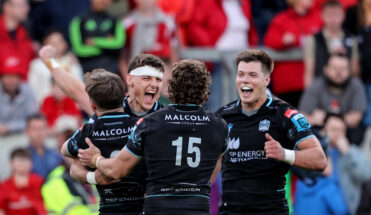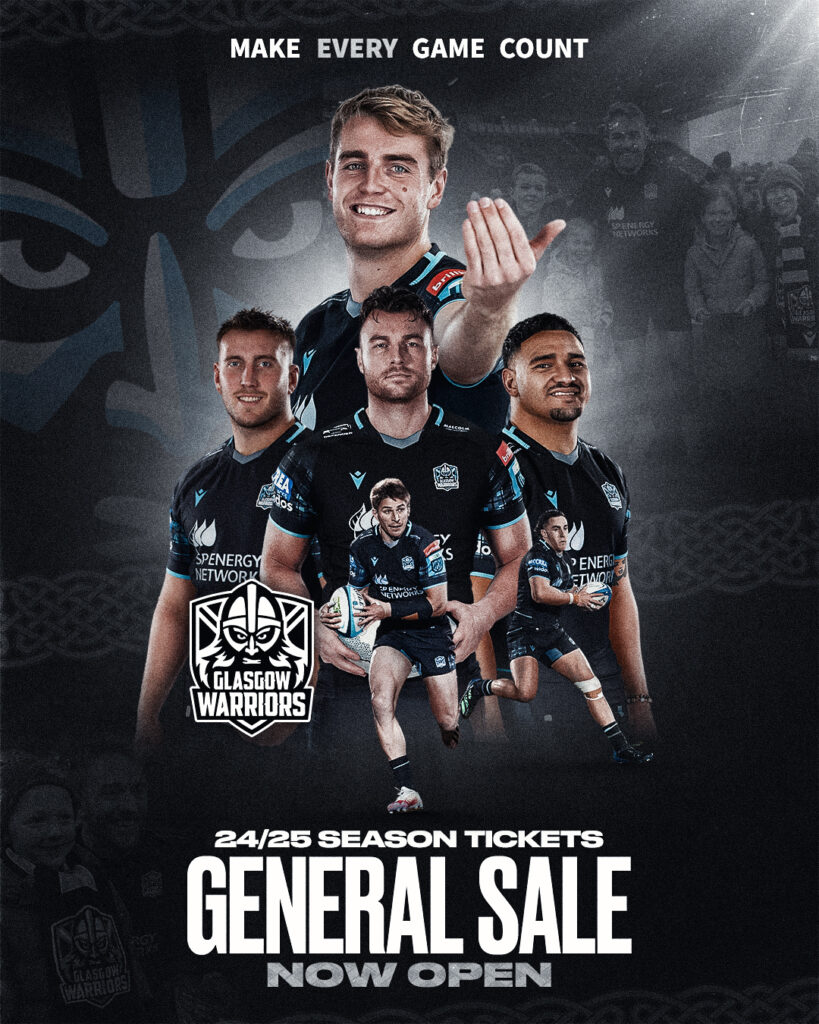Warrior Roots | Henco Venter
Hendrik Petrus [Henco] Venter, was born in the heart of South Africa in 1992. He was raised in Smithfield, Free State, roughly 140 kilometres due south of Bloemfontein, and roughly 14,000 kilometres from his future home in Glasgow.
Rugby has always been a part of his life. From memories of playing against his brother and sister in the back yard during half time of Springbok games where his uncle, the 1995 Rugby World Cup-winning flanker Ruben Kruger, was playing, through to learning character-building lessons that have shaped his own professional rugby career.
In South Africa, Japan, and now Scotland, there has never been a time where the oval ball wasn’t by his side.
For Henco, his rugby journey has been shaped as much by the people who have invested in him as by the places and cultures where he has pursued his career.
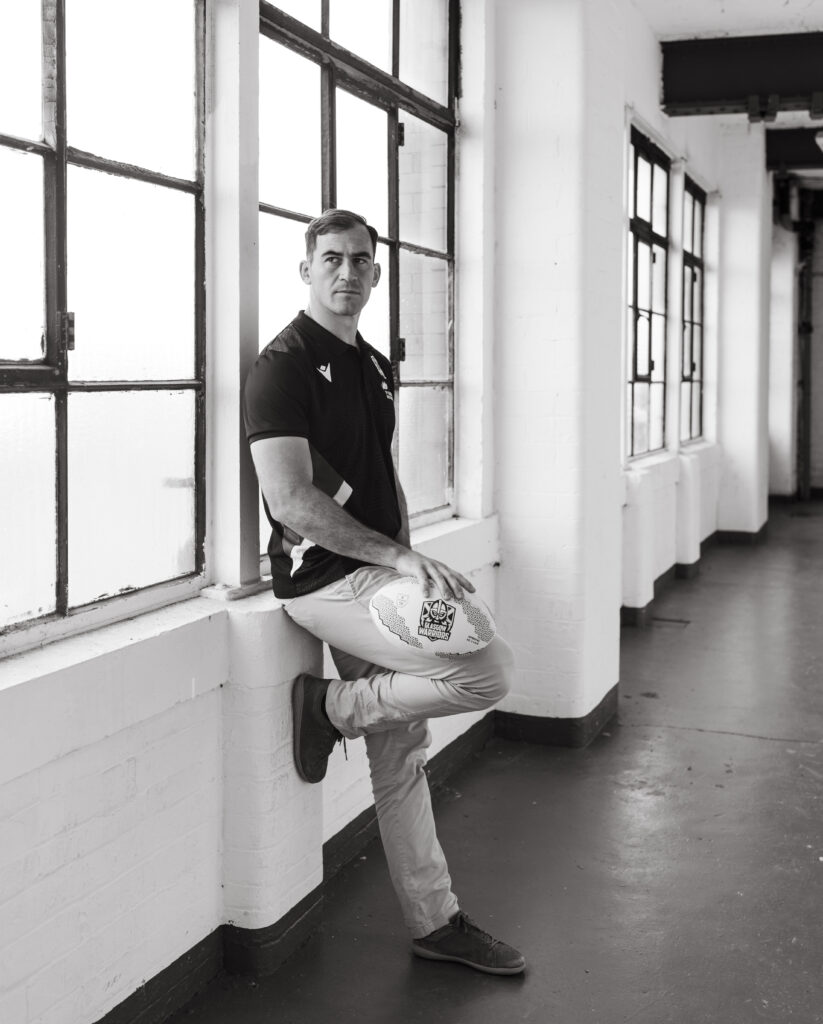
DISCOVERING RUGBY
“I was raised in the middle of nowhere. It was farm living. I was happy,” he said.
“My very first memory of rugby was vague, maybe watching my uncle and going out to the back yard at half time and playing with my siblings. There’s no doubt though, rugby has always been a part of my family’s life. My uncle playing for the Springboks and my dad, Dawie, coaching schools’ first team rugby before he started farming. When he was coaching, I was always on the pitch running around there. Rugby really was a part of our way of life.”
A theme that is clear through conversation with Henco is how he sees his life circumstances as opportunities to grow, right down to the smallest details.
He continued: “Farmers are known to be rugby players where I grew up in South Africa. The work you must do and how it complements the sport. Even down to the small stuff like your hand strength, or just the physicality helps a lot. My family are sheep farmers, we rear Dohne Merino sheep for their wool and meat. Where we live, these sheep must be tough because the conditions are so dry, it’s very different to the wet conditions here.
From those farming roots a journey in rugby began that has continued right through to today.
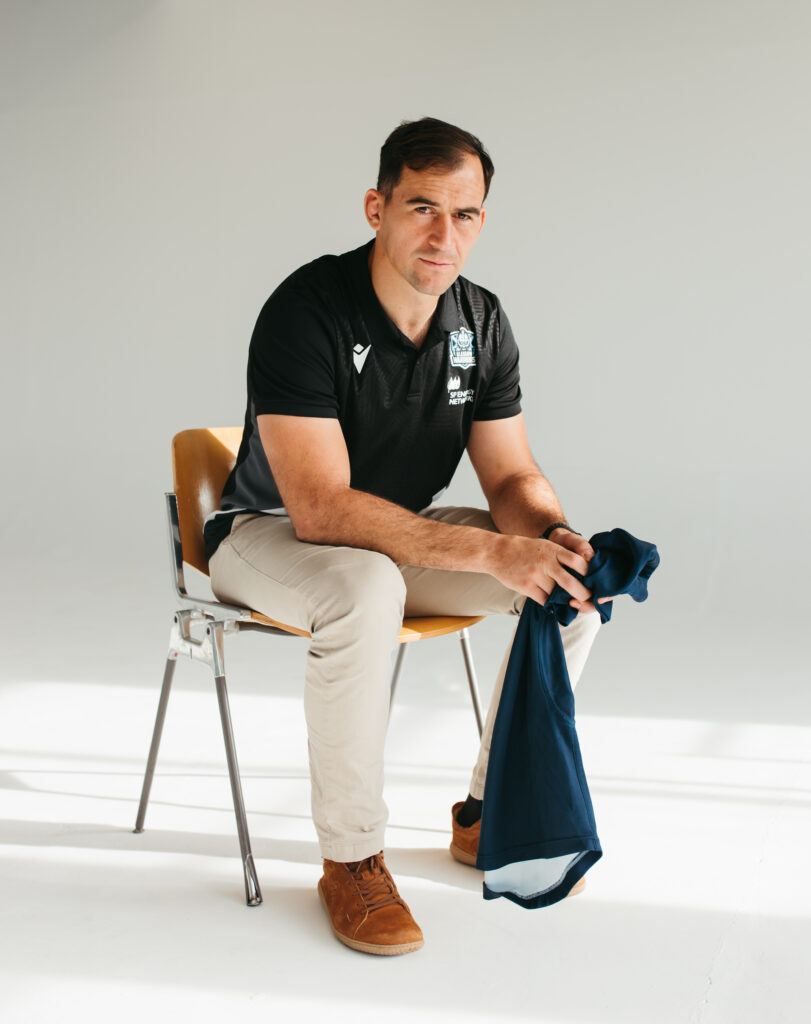
GREY COLLEGE ROOTS
“I was always good at rugby because I grew fast. Before primary school I played for the primary school – that is a kind memory,” he explained.
“I just played the whole time, never sitting. With the weather in South Africa, you must be outside the whole day – kicking the ball, playing with your friends, thinking your someone doing something, like all children should do, role playing.
“From there I played for my school where I boarded. I was in Grey College [from 2001 to 2010]. It’s funny, everyone in South Africa knows it, it’s in Bloemfontein. It is the rugby school of South Africa, we win everything, so it was very good for me! I was fortunate to be there and I’m still very proud of it.
“I then went to play Varsity Cup and then Free State with the Cheetahs at the junior ranks. At that stage you split your time, playing for both the University and Cheetahs. Then I went to Japan, back to Free State and then the Sharks.
“Even now, I still go back to my roots at Grey College and what I learned there.
“The problem is though, when I left, I didn’t know what losing was because losing was not an option. I quickly had to learn to adapt.
“After school was my first experience of losing. I was 19, finished with school, and I realised I won’t win everything every time. That took some time to get used to. I had to start making other plans because other people were now just as good as me or better than me. I had to think of new and inventive ways to play and pay much closer attention to the detail. There was an element of having to coach myself. It was eye opening to the world, but we turned it around and we won a few things with Free State [the 2016 and 2019 Currie Cup].
“What I learned in that time was, first be honest with yourself. If you were good, don’t think you were too good. If you were bad, don’t think you were so bad. Sometimes you must pat yourself on the back, but it’s a fine line to stay on the right side of.”
With his foundations in the sport firmly set through Grey College and the Free State Cheetahs, in 2018 Henco moved to Japan to play with the Toshiba Brave Lupus.
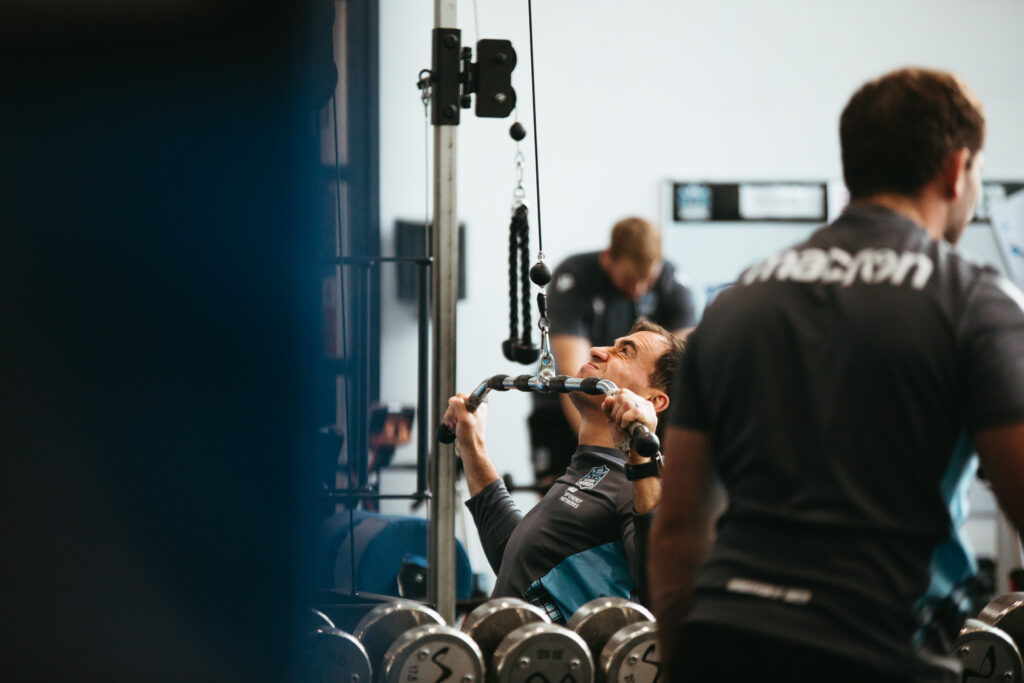
ADAPTING PERSPECTIVES
He carried on the story: “I enjoyed Japan a lot, I am not fussy about anything because I am from a small town. But ultimately, rugby stays rugby.
“Japan was a good learning curve; I was 26 and I played with some big internationals at Toshiba [18 times-capped New Zealand international and 2011 Rugby World Cup winner] Richard Kahui and [80 times-capped Japan captain] Michael Leitch. They gave me a different perspective and viewed things differently, which adapted my point of view and took me away from becoming too rigid in the South African way of playing. Similarly, here I’ll learn different approaches from the Scots and the Argentinians.
“The pitches in Japan are very good, their groundsmen are perfect, but Japan is very hot and very cold, so you must understand the balance and climate and use your ability to adapt. I’ve learned that I flourish in the cold weather.”
As he shares his stories, it is clear Henco is eager to share the lessons he has learned and the different motivations he’s discovered through the various cultures and teams he has played for.
He continued: “For me rugby has always been there. I studied it at varsity; you play rugby, then you study and keep on playing, then you realise you’ve played for seven years, and you don’t know anything else. By the time I thought about it I was past the point of knowing anything different. I have been fortunate to keep on playing every day.
“With rugby there every week there is a new team and a different challenge. Sometimes you get dropped and then you get a golden handshake and you’re told thank you for your work. What I’ve learned is that it is not the end of the world to be dropped and its water off the ducks back.
“One week you beat a team by 60 and then the next week you lose, so what then! I have always learned you can work better, and you can go further in resilience and toughness. You must understand the concept that you won’t die, I don’t know how many people died of fatigue on the rugby field, hopefully I’m not the first! It’s not something you are born with, it’s a concept to be learned.”
Henco is a motivated player. Motivated by the sport, motivated by being the best version of himself, motivated by the people he has met along the way.

BETTER THAN YESTERDAY
He said: “My motivation is embedded in me, it’s deep in my psyche. I start by wanting to and having to be a good person. My motivation starts there. Then, the next thing is to surely be better than yesterday, to make sure I can flourish.
“Your children don’t ask you how you feel when you get up and must go to work, they ask you where my banana or my bread is, so the responsibility of life is to choose everyday who you want to be, or who you want to be and not to become complacent. Complacency is an easy thing to choose. Every day there is a form of it. So, I choose to be better than yesterday.”
Behind these journeys and lessons learned there are people and for Henco it is family that has helped to create deep roots in rugby and life.

FAMILY FIRST
Henco continued: “My Dad has been one of the most influential people in my life. He was never my coach. He played club rugby, he was always a coach, and I was always with him, so it was good having someone who understands rugby and he would tell me how to do this or that better. A young person needs someone to form them, to bend the branch while it’s still young, that’s vital. It is good to have a critique every day, someone watching all your games but doesn’t care to say you didn’t play well or doesn’t care what other people say.
“I am very fortunate to have both parents [Dawie and Marietjie] still, so I am very family orientated. I enjoy spending time with them, my sister [Ane de Wet] and brother [Behan] and my wife [Lurinda] of course. She has become a big rugby fan since we married. She wasn’t the biggest rugby fan before we met, but you know, life happens.
“Then there was my Mum’s brother, my uncle, Ruben [who sadly died in 2010]. We grew up with Ruben playing rugby against us in the back yard and seeing him every Christmas and giving us Blue Bull jerseys. I was the biggest Blue Bull fan ever, but not anymore!
“It’s hard to explain it, if you have someone playing in a team, you support the guy in the team more personally. So, I used to take the Blue Bull flag and put it up in the farm when we won. Luckily they were very good then! I was proud.
“Ruben made us feel like we were part of his playing career. We were proud of him. We saw him a lot and watched all his games, which I really enjoyed.
“I don’t remember him winning the 1995 Rugby World Cup. I was seven, eight, nine, ten when I realised the significance of it. Back at home there is a signed ball from all the Boks who played in that game. Everyone has something from that game, it made us all feel part of it, even though I was born in 1992.
“I remember all the stuff that the team won and the photos, but in 1995 I was too young. Soccer is bigger than rugby in South Africa, but it isn’t better. Soccer can’t compete at the world level. In rugby we can, and it brings an extra competitiveness and something that everyone can get behind and everyone can be proud of. Rugby brings unity and something to look forward to. To have someone in our family who played at that level and brought us on that journey, it was amazing!”
As the conversation ended Henco had one more person he wanted to share about and the influence they had on his career.

THE BEST I’VE SEEN
He finished: “Franco [Smith] has had a big role in my career. I have played a lot of rugby under him. We have won a lot of trophies. He’s a big part of why I am here.
“I know what he stands for, and what he plays for, and I enjoy the brand playing under him. Every coach gave me something, he gave me the most though, especially because I started playing for him at varsity and then we went to the Free State.
“Franco made me understand the game the best way. When you are young you understand how you can win, but you don’t understand the essence of it, but as I’ve got older and played more rugby and seen more, I can see the worth in all that we do. Everything is designed to make players better, which is why last year was so good. That approach is rewarding and gives you a big return on your investment. The level of detail he works to is the best that I’ve ever seen. It’s great being here and being coached under Franco again. I can’t wait to see what we can achieve.”
Related Fanzone
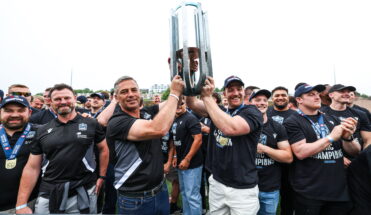

Homecoming
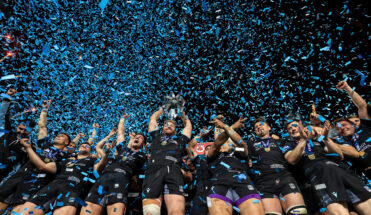

Trophy Lift
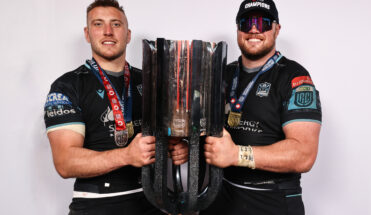

Champions Gallery
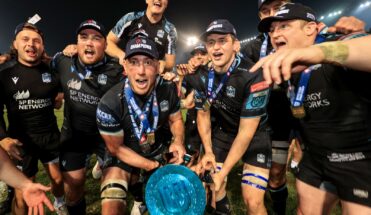

Your champions are home | Homecoming at Scotstoun
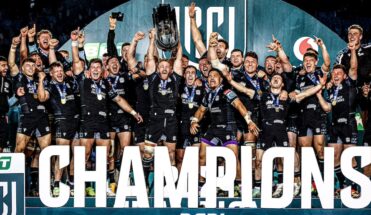

When Warriors became Champions
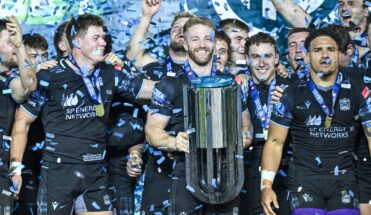

CHAMPIONS | Highlights | BKT URC Grand Final | Vodacom Bulls v Glasgow Warriors | Saturday 22 June 2024
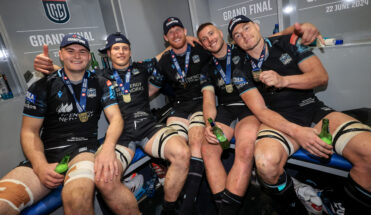
That Champion Feeling
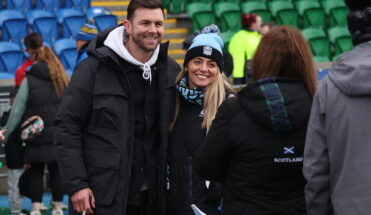
Wilson backing Warriors to make Glasgow proud
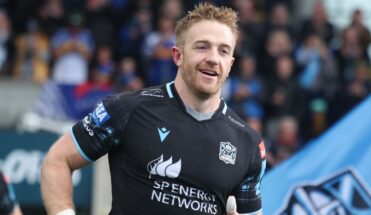
Steyn ready to do Whatever It Takes
